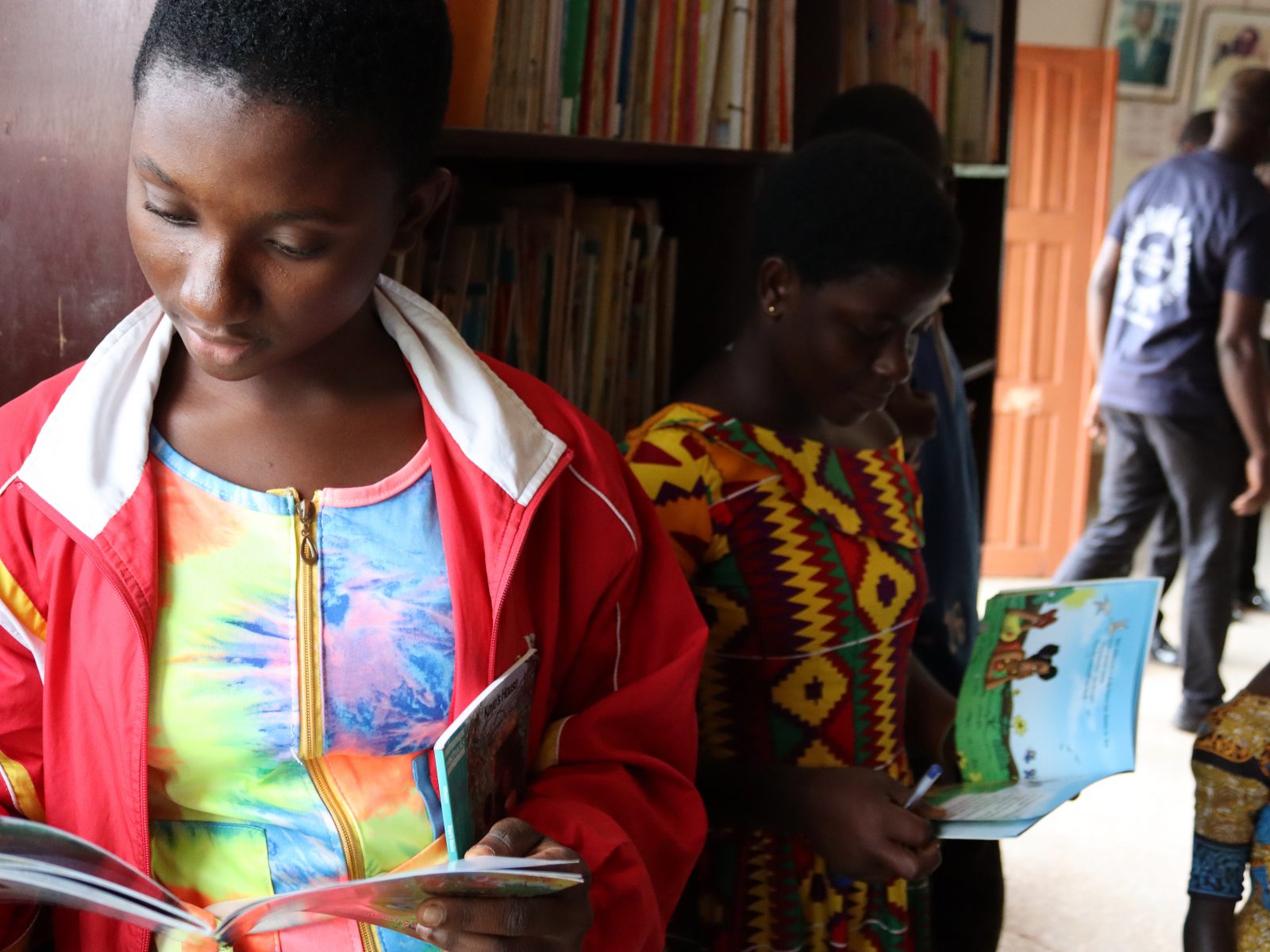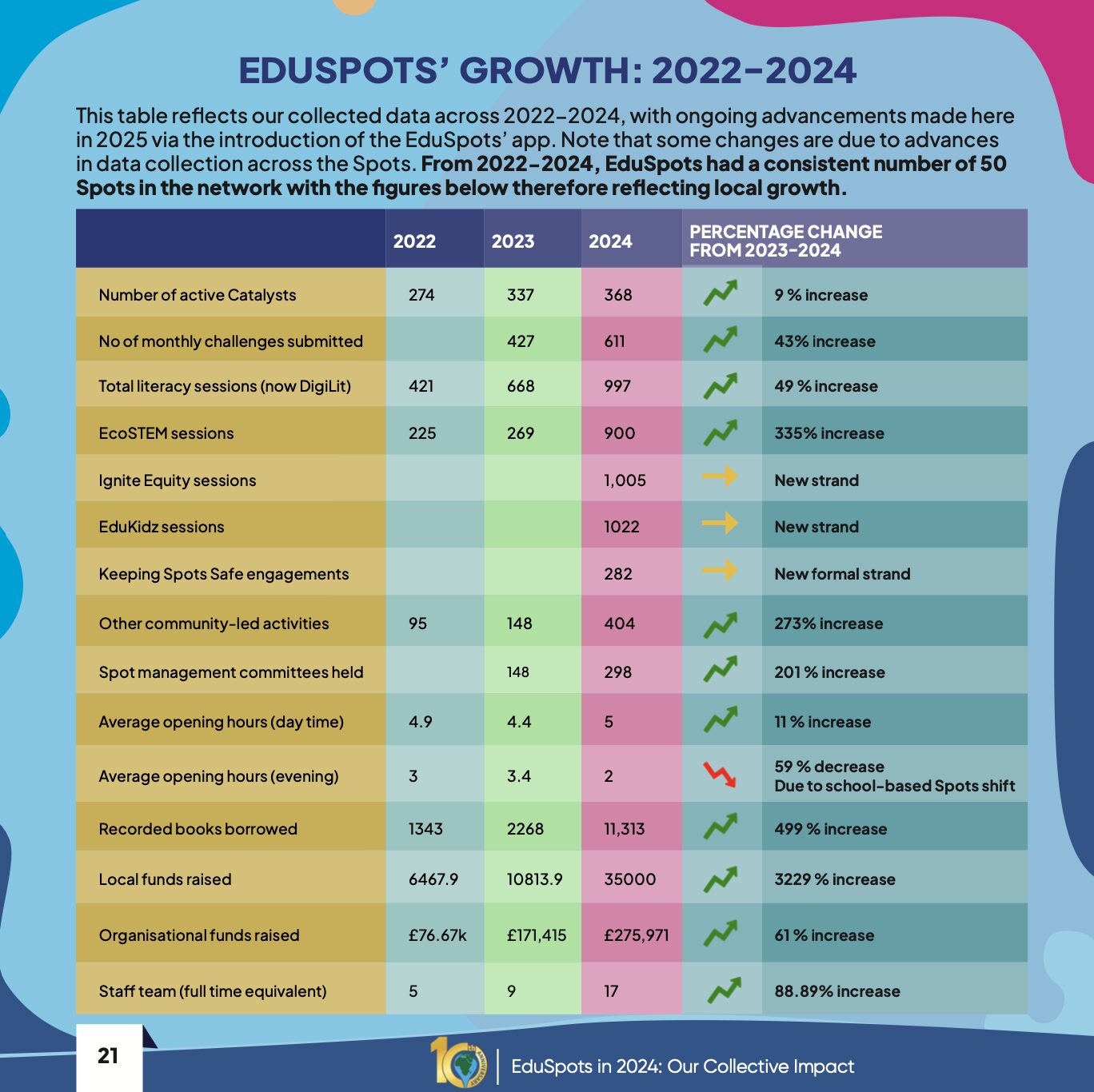“The EduSpots programme has successfully transformed educational landscapes across Ghana, fostering a new generation of active, empathetic citizens and catalysing community-driven change.” (Expectation State, Independent Evaluation, 2025)
Independent evaluation has validated what communities themselves have been witnessing: classrooms are becoming more interactive and learner-centred, parents are moving away from harsh punishment towards positive discipline, and young people are stepping forward with the confidence to use their voices and lead. As one headteacher reflected, the shift for individual educators is nothing short of transformative:
“Before the programme, I was an ordinary headteacher. I returned not just as a school leader, but as a strategic leader, a change maker, a community builder and a staff developer.”
— Hamidu Kaadri, Catalyst and headteacher
The 2025 Independent Evaluation, which involved interviews and surveys with over 200 headteachers, learners, community members and teachers in 10 Spot communities, concluded:
“The shift towards more learner- centred, inclusive, and practical teaching methods has transformed school-based pedagogy, making education more relevant and engaging for students.” (Expectation State, 2025)
Evidence of change
A 2025 independent study across 10 Spot communities found:
-
A 52% increase in Catalysts’ self-reported empathy and cultural sensitivity scores
-
85% of Catalysts felt able to handle complex safeguarding concerns
-
Learners’ participation in civic activities increased by 40%
-
Parents reported greater openness from their children in sharing issues they faced at school
-
Teachers recorded a 45% rise in student-centred practices in their classrooms
These findings were echoed by stories of change across the network: students becoming advocates for their rights, girls finding their voices in community meetings, parents choosing dialogue over violence, and chiefs visiting Spots regularly to champion safeguarding.
A collaborative learning model
Impact is not measured from the outside alone. Catalysts themselves are active participants in EduSpots’ monitoring and evaluation, contributing stories, feedback and ideas that shape how the model evolves. As one Catalyst shared, “We’re not just implementing a pre-set model. Our ideas and experiences are actively shaping how EduSpots evolves. It’s truly a collaborative effort.”
Through validated surveys with ImpactEd, we have also tracked long-term improvements, with these results in 2024 across a 10 month period:
-
A 12% increase in self-efficacy among Catalysts.
-
A 5% increase in civic engagement among learners in Ignite Equity clubs.
-
A 4.8% increase in Sense of Community scores across Catalysts.
-
A 13% increase in emotional engagement in maths and science for learners in EcoSTEM clubs.
Building for scale
The independent evaluation concluded that the EduSpots model is replicable, sustainable and offers significant value for money, with volunteer engagement and community ownership at its core. As one evaluator wrote, “The model offers a structured approach to programme delivery. It offers significant value for money, leveraging volunteer engagement and capacity building to maximise impact.”
It costs just £3000 / per communities, to support communities in building a team to ignite their own future of learning across a one year period, with an estimated £10,000 to move communities towards their own self-sustainability within our four year Community Leadership in Education Programme model.
This combination of lived experience, measurable results and external validation positions EduSpots as a model ready to expand, not only doubling our reach in Ghana, but offering a blueprint for community-driven education globally.
Explore more:

 >
>
